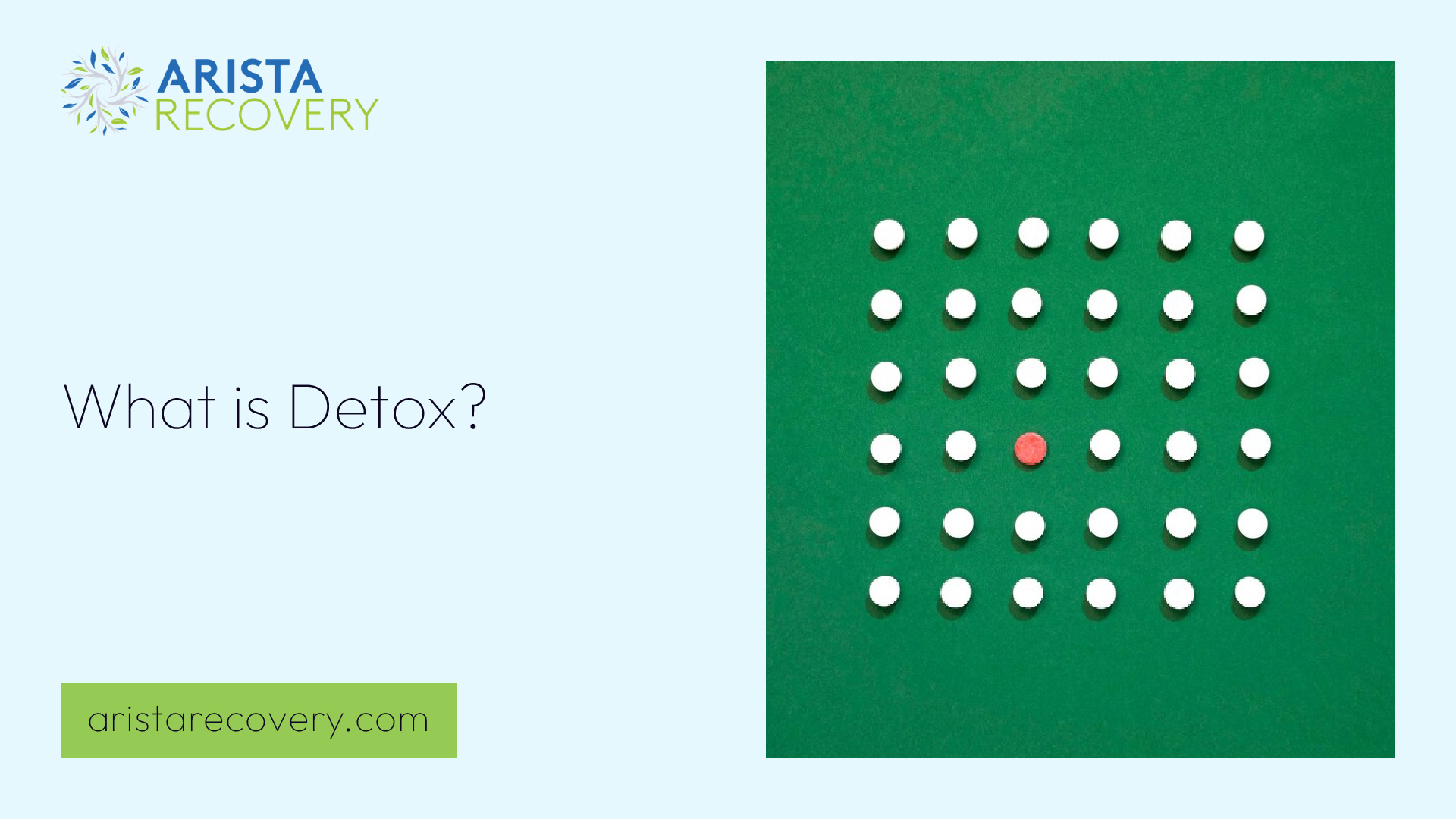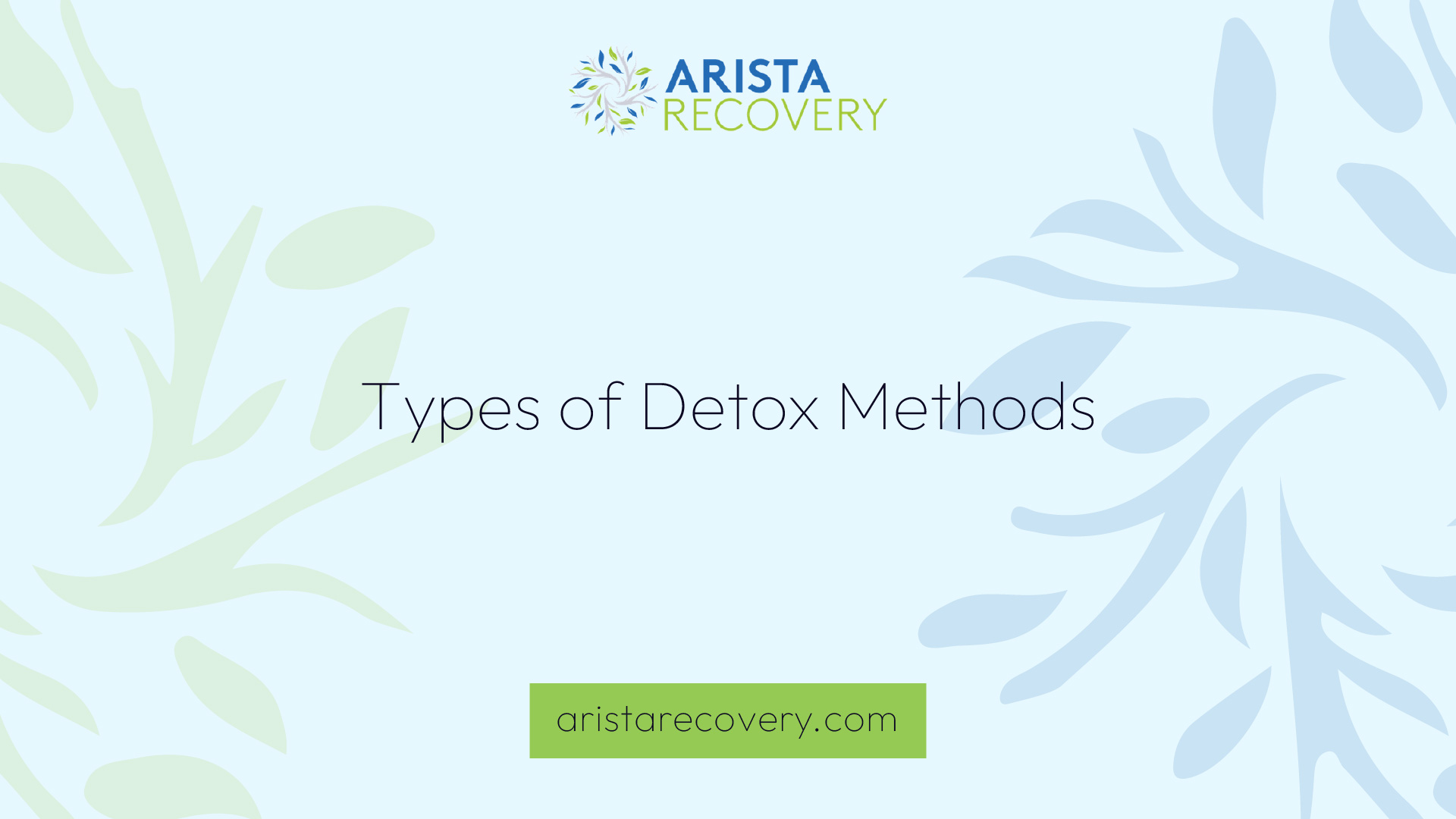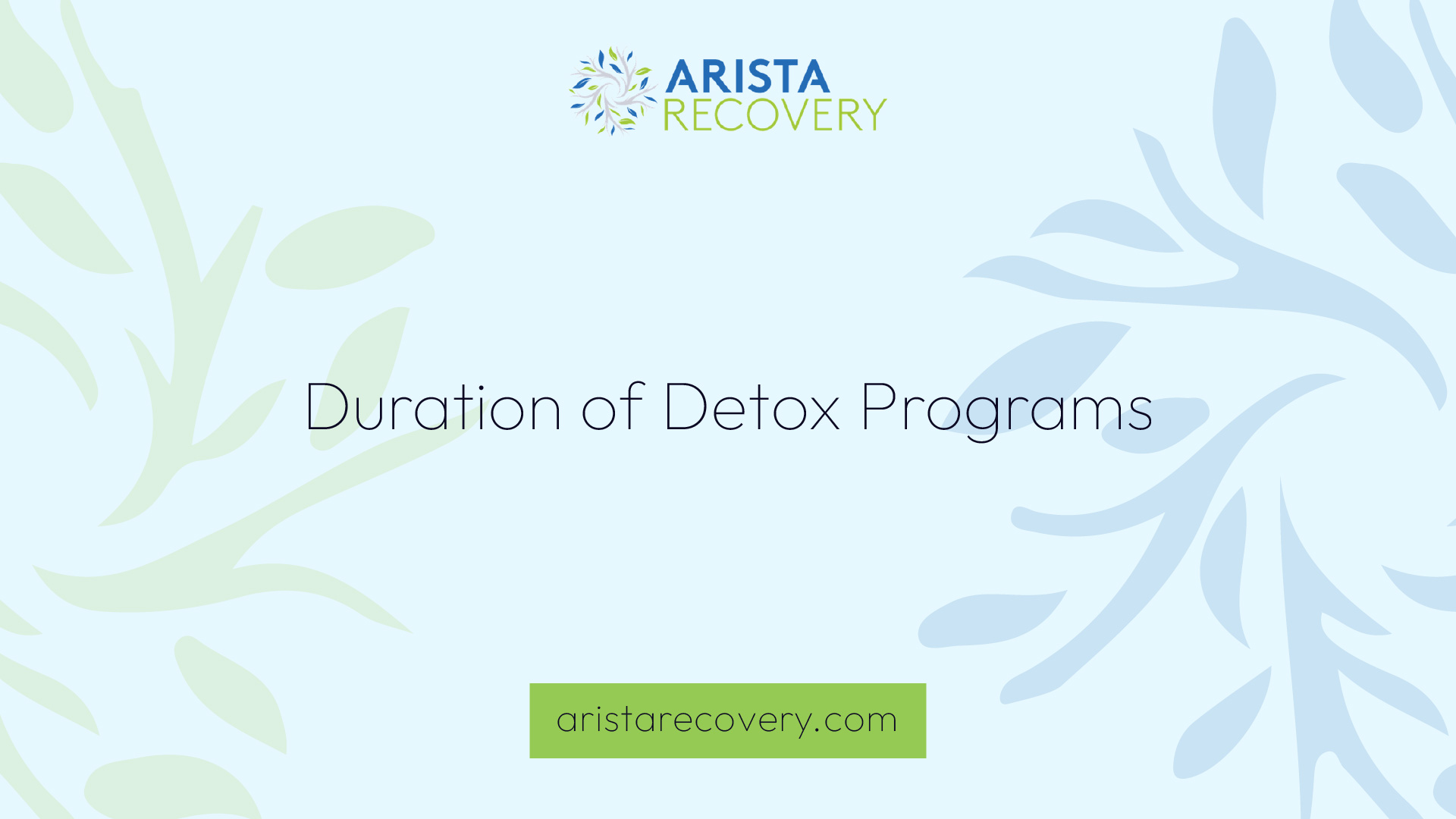What is Detox?


Understanding Detox
Definition of Detox
Detox, short for detoxification, refers to the process of removing toxins from the body. According to Merriam-Webster, the term "detox" was first used in 1973. It encompasses a range of practices and programs designed to help the body eliminate harmful substances. Detox can be a crucial part of addiction treatment, involving the removal of drugs from a patient's system through a medically supervised withdrawal process [1].
Detoxification can be achieved through various methods, including medical detox programs, natural detox therapies, and detox diets. The body also has its own natural detox mechanisms, such as the liver, kidneys, skin, and lungs, which work continuously to filter out toxins.
Importance of Detox Programs
Detox programs are essential for several reasons:
- Substance Use Treatment: One of the first steps in addiction treatment is detox. This process helps to safely remove drugs or alcohol from the body, which is crucial for individuals beginning their recovery journey. Detox programs often include medical supervision to manage withdrawal symptoms and ensure patient safety [1].
- Health and Wellness: Detox programs can help improve overall health by reducing the burden of toxins on the body's organs. This can lead to better digestion, improved skin health, and increased energy levels. Some evidence also suggests that detoxes can aid in weight loss, improve insulin resistance, and manage blood pressure.
- Preventative Care: Regular detoxification can serve as a preventative measure, helping to avoid the accumulation of harmful substances that could lead to chronic diseases. By supporting the body's natural detoxification processes, individuals may experience long-term health benefits.
While detox programs can offer several advantages, it is crucial to approach them with caution. Not all detox methods are backed by scientific evidence, and some can pose risks if not properly managed. For a comprehensive understanding of the benefits and risks associated with detox programs, explore our section on the potential benefits of detox.
By understanding what detox is and its importance, individuals can make informed decisions about incorporating detox practices into their health and wellness routines. Whether through medical detox, natural therapies, or dietary changes, detoxification can play a vital role in promoting a healthier lifestyle.
For more information on related health topics, visit our articles on what is an eating disorder? and types of psychotherapy.

Types of Detox Methods
Detoxification, commonly known as detox, is the process of eliminating toxins from the body. It is often the first step in addiction treatment, involving the removal of harmful substances from the patient's system through various methods. In this section, we will explore two primary types of detox methods: medical detox and natural detox therapies.
Medical Detox
Medical detox is a supervised process that helps individuals safely withdraw from substances under the care of healthcare professionals. This method is particularly critical for those dealing with substance use disorders, as it ensures the patient's safety and comfort during withdrawal.
One of the first steps in addiction treatment is detox, involving the removal of the drug from the patient's system through a medically supervised withdrawal process. For instance, detox therapy can vary in length, with most programs lasting about ten days [1]. Medical detox often involves the use of medications to manage withdrawal symptoms and reduce cravings. These medications can be crucial in preventing severe complications and making the detox process more manageable.
Medical detox is a fundamental component of comprehensive addiction treatment programs, providing a safe and structured environment for individuals to begin their recovery journey. For more information on related treatments, check out our article on types of psychotherapy.
Natural Detox Therapies
Natural detox therapies focus on using natural methods to support the body's detoxification processes. These therapies often involve dietary changes, herbal supplements, and lifestyle modifications to help eliminate toxins.
Detoxification diets and cleanses often recommend consuming primarily drinks like special water, tea, or fruit and vegetable juices to help the body shed toxins gumming up the system. The idea is to give the digestive system a break, allowing it to heal and better absorb nutrients in the future.
Different detoxification programs, such as green tea detox, juice cleanses, and detox water, have gained popularity. However, it's essential to exercise caution as excessive consumption of these products can lead to health issues like arrhythmias, sleep disturbance, constipation, high blood pressure, rash, liver injury, and electrolyte imbalances [3].
Natural detox therapies can be an effective way to support the body's natural detoxification processes. However, it's important to approach these methods with caution and seek guidance from healthcare professionals to ensure they are safe and appropriate for your individual needs.
Understanding the different types of detox methods can help individuals make informed decisions about their detox journey. Whether opting for medical detox or natural detox therapies, it's essential to prioritize safety and seek professional guidance when necessary. For more information on the importance of detox programs, visit our section on the importance of detox programs.

Duration of Detox Programs
The duration of detox programs can vary widely depending on several factors, including the type of detox and individual health conditions. In this section, we will explore the typical length of detox programs and the various factors that can affect their duration.
Length of Detox Programs
Detox programs can range in duration from a few days to several weeks. The length often depends on the specific detox method being used and the individual's needs. According to Dictionary.com, most detox therapy programs last about ten days. However, some programs can be shorter or longer.
It's important to consult with healthcare providers before starting any detox program to determine the appropriate length and ensure it meets individual health requirements.
Factors Affecting Detox Duration
Several factors can influence the duration of a detox program, including:
- Type of Detox Method: Different detox methods, such as medical detox, juice cleanses, or green tea detox, have varying recommended durations. For example, a green tea detox might last for a few days to two weeks, whereas a medical detox could be longer due to the need for medical supervision.
- Individual Health Conditions: Pre-existing health conditions can affect how long a detox program should last. Individuals with specific health concerns may require a longer detox period under medical supervision.
- Goals of the Detox: The intended outcomes of the detox can also determine its length. For example, detoxing for general wellness may require a shorter duration compared to detoxing for substance use recovery.
- Body's Natural Detoxification Abilities: The body naturally eliminates toxins through the kidneys, liver, digestive system, skin, and lungs. The efficiency of these systems can affect the duration needed for a detox program.
- Response to Detox: Individual responses to detox programs can vary. Some people may feel the benefits within a few days, while others might need a longer period to achieve the desired results.
Understanding these factors can help in choosing the right detox program and determining its optimal duration. For more information on the benefits and risks of detox programs, visit our section on what is detox?.
Benefits and Risks of Detox
Potential Benefits of Detox
Detoxification, commonly referred to as detox, involves a process aimed at eliminating toxins from the body. While the body naturally detoxifies itself through organs like the liver, kidneys, and skin, some people turn to detox programs to support this process. Here are some potential benefits:
- Improved Digestion: Some detox diets focus on consuming fiber-rich foods and hydrating beverages, which can aid in digestion and reduce bloating.
- Increased Energy Levels: Participants often report feeling more energetic after completing a detox program, possibly due to the elimination of processed foods and sugar.
- Weight Loss: Detox diets can lead to short-term weight loss, primarily due to reduced calorie intake and the elimination of water weight.
- Mental Clarity: Some individuals experience improved focus and mental clarity during and after a detox program.
- Reduced Inflammation: A diet rich in fruits and vegetables and low in processed foods can help reduce inflammation in the body.
Risks and Concerns of Detox Programs
While detox programs can offer some benefits, they also come with several risks and concerns. Understanding these risks is essential for making an informed decision.
- Nutritional Deficiencies: Detox diets often involve severe calorie restriction and the elimination of certain food groups, which can lead to nutritional deficiencies.
- Dehydration: Some detox methods, especially those involving laxatives and diuretics, can cause dehydration, leading to headaches, dizziness, and fainting [5].
- Muscle Loss: Rapid weight loss from detox diets can result in muscle loss, particularly if protein intake is insufficient.
- Digestive Issues: The use of laxatives and diuretics can disrupt normal digestive function and lead to issues like diarrhea and electrolyte imbalances.
- Lack of Scientific Evidence: According to the National Center for Complementary and Integrative Health, there is no substantial scientific evidence supporting the health claims of detox programs, including weight management and toxin elimination.
Detox programs often promise significant health benefits, but it's crucial to weigh these benefits against the potential risks. For further information on related topics, visit our articles on what is an eating disorder? and types of psychotherapy.
Popular Detox Diets
Detox diets are popular methods used by individuals seeking to cleanse their bodies and improve overall health. Among the various detox regimens, juice cleanses and green tea detoxes are commonly practiced. Understanding these methods can help individuals make informed decisions about their detox journey.
Juice Cleanses
Juice cleanses involve consuming only fruit and vegetable juices for a certain period, typically ranging from a few days to a week. These cleanses are believed to provide a concentrated source of vitamins and minerals while giving the digestive system a break. However, it is essential to note that there is no scientific evidence supporting the claims that juice cleanses effectively eliminate toxins or lead to sustainable weight loss [5].
A typical juice cleanse might include a variety of fresh juices made from ingredients such as kale, spinach, apple, carrot, and ginger. While these ingredients are nutritious, relying solely on juice for an extended period can lead to nutrient deficiencies and potential health risks.
For those considering a juice cleanse, it is crucial to consult with a healthcare professional to ensure it aligns with their health needs and goals. For more information on detox practices, visit our section on healthy detox practices.
Green Tea Detox
Green tea detoxes involve incorporating green tea into one's daily routine, often in combination with a balanced diet and other lifestyle changes. Green tea is rich in antioxidants, particularly catechins, which are believed to support the body's natural detoxification processes. Despite the popularity of green tea detoxes, there is limited scientific evidence to confirm their effectiveness in eliminating toxins or promoting long-term weight loss [4].
Green tea detoxes typically recommend consuming several cups of green tea throughout the day, either hot or cold. Some variations may include specific dietary guidelines, such as reducing processed foods and increasing the intake of whole foods.
While green tea can be a healthy addition to one's diet, it is essential to maintain a balanced and varied diet to meet all nutritional needs. For those interested in exploring other detox diets, our article on what is detox? provides additional insights.
Both juice cleanses and green tea detoxes are popular methods in the detox community. However, it is crucial to approach these diets with caution and awareness of their potential risks and benefits. As always, consulting with a healthcare professional is recommended before starting any detox program.
Healthy Detox Practices
Hydration and Detox
Hydration is a crucial aspect of detoxification. Water plays a vital role in helping the body eliminate waste products through urination, breathing, and sweating. Staying hydrated assists the kidneys in flushing out toxins, which is essential for maintaining overall health. According to Healthline, the recommended daily water intake is 125 ounces for men and 91 ounces for women.
Adequate hydration supports various bodily functions and helps in the detox process. For those exploring detox programs or simply aiming to improve their health, maintaining proper hydration is a fundamental practice.
Role of Antioxidants
Antioxidants are substances that can prevent or delay cell damage, which may lead to chronic illnesses. They neutralize free radicals, reducing oxidative stress and protecting cells from damage. Common antioxidants include beta-carotene, selenium, and vitamins A, C, and E, which are found abundantly in fruits and vegetables [2].
Antioxidants play a significant role in detoxification by supporting the body's natural defense mechanisms. They help to counteract the harmful effects of free radicals, thus promoting overall health and well-being.
Incorporating antioxidant-rich foods into a detox regimen can enhance the body's ability to cleanse itself and protect against cellular damage. For more information on maintaining health during detox, visit our articles on what is an eating disorder? and types of psychotherapy.
References
[1]: https://www.dictionary.com/browse/detox
[2]: https://www.health.com/eat-well-6951509
[3]: https://health.clevelandclinic.org/detox-cleanse
[4]: https://www.healthline.com/nutrition/how-to-detox-your-body
You’re not alone in this.
When mental health challenges and addiction intersect, it can feel isolating. At Arista, we offer compassionate, evidence-based, and trauma-informed care to help you heal, grow, and move forward.
You’re not alone in this.
When mental health challenges and addiction intersect, it can feel isolating. At Arista, we offer compassionate, evidence-based, and trauma-informed care to help you heal, grow, and move forward.
Support that moves with you.
You’ve taken a brave first step. At Arista Recovery, we’re here to help you continue with best-in-class care designed for long-term healing and support.
.webp)






